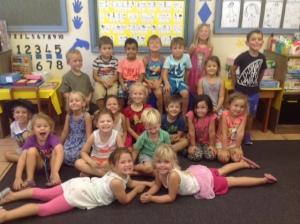As a parent, you know you love your child but how can you show love in a way that is meaningful to your child?”
I have so enjoyed reading “The Five Love Languages of children” by Dr Gary Chapman. “In this book, the author states that children need to feel loved and not just told that they are loved. We, as parents and educators must never underestimate the role and importance of our love and attention when it comes to our children. Dr Chapman goes on to state that there is a strong link between love and learning. Learning is not isolated but rather happens alongside stable emotional development. A child that feels loved is easier to discipline and guide towards a path of success.

So, how do we parent and raise children to grow into positive and confident individuals that are able to reach their full potential?
Each individual, children and adults alike, have different love languages which allow us to give and receive love in different ways. A child’s emotional reserve will depend on how much love is in their “love tank”. Children who have a full love tank are often more content and can play independently. Children need their emotional tanks filled so they can feel secure and develop a healthy self-image which will enable them to face the challenges of everyday life.
Parents, teachers, sport coaches and many other adult figures in our children’s lives play a role in showing love toward them. As individuals we all have different ways in which we FEEL loved. Furthermore, it is our responsibility to find out what makes our children feel loved. If we don’t feel loved it can ultimately lead to feelings of rejection or resentment, even though the child is very much loved.
In order to show love effectively to a child, we need to speak the right love language. The five love languages are words of affirmation, physical touch, spending quality time, giving of gifts and acts of service.

If your child’s love language is words of affirmation, they will thrive on positive verbal feedback. Your feedback should be legitimate, specific and genuine.
Children who have physical touch as their language of love, flourish with hugs and touch. If you can offer the physical touch before they have had to ask for it, it is likely to be much more powerful.
Giving quality time is another love language that fills up some children’s love tanks. Making eye contact and giving undivided attention through activities such as reading together and sharing a meal together can equate to love through this time spent with your child. For this child, quality time equals love.
The act of giving gifts is another love language which makes some children feel valued and loved. If your child falls into this category, it is suggested that you take everyday things and turn them into gifts. Through this act of giving, your child will feel validated and cared for.
Acts of service is the final love language that I am going to mention. If you want to show love to a child who receives love in this way, offer to help them and do tiny, thoughtful things which they will appreciate and in turn will make them feel loved.
To conclude, every human being has an inherent need to be loved. This is equally true for our children. Over the years, I have seem children blossom and thrive when a connection has been made with them which has tapped into their language of love.
As parents, I encourage you to discover your child’s language of love and to show your child each and every day that you love them – in a way that they will feel and understand.
Pippa Sinclair: Sunningdale Prep campus principal











